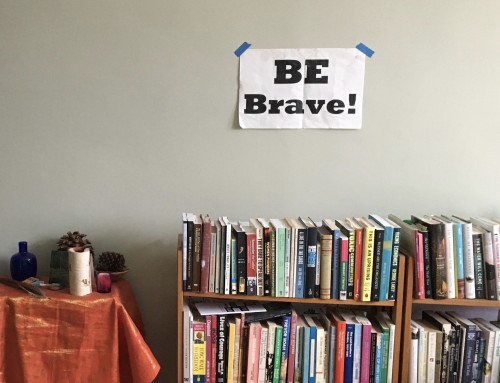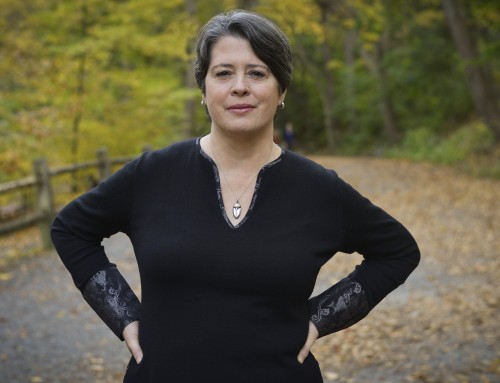 My daughter has introduced me to the soundtrack of Wicked, and I’m hooked. I haven’t seen the Broadway hit, but I like the challenging messages in the lyrics, starting with the implied questioning of the labels “wicked” and “good” applied to the two main characters. For those who don’t know what I’m talking about, Wicked is the story of the witches of OZ in their youth—long before Dorothy arrived on the scene. We learn that Glinda “the good witch of the North” cares about being popular more than being good. She is pretty and knows how to tell people what they want to hear. Her roommate Elphaba, in contrast, isn’t afraid to speak up for what she thinks is right, and she isn’t afraid to fly, something that is apparently frowned upon in Oz (as elsewhere). She sees the wizard for the sham he is long before Dorothy, and for speaking an inconvenient Truth to power she gets labeled “wicked.” The fact that she is green, and people in Oz are prejudiced against green witches (as elsewhere), only encourages the Ozians to believe the worst about her and ultimately to blame her for all their city’s problems. The fact that many of the songs are funny reminds me of the power of art to make us think and smile at the same time.
My daughter has introduced me to the soundtrack of Wicked, and I’m hooked. I haven’t seen the Broadway hit, but I like the challenging messages in the lyrics, starting with the implied questioning of the labels “wicked” and “good” applied to the two main characters. For those who don’t know what I’m talking about, Wicked is the story of the witches of OZ in their youth—long before Dorothy arrived on the scene. We learn that Glinda “the good witch of the North” cares about being popular more than being good. She is pretty and knows how to tell people what they want to hear. Her roommate Elphaba, in contrast, isn’t afraid to speak up for what she thinks is right, and she isn’t afraid to fly, something that is apparently frowned upon in Oz (as elsewhere). She sees the wizard for the sham he is long before Dorothy, and for speaking an inconvenient Truth to power she gets labeled “wicked.” The fact that she is green, and people in Oz are prejudiced against green witches (as elsewhere), only encourages the Ozians to believe the worst about her and ultimately to blame her for all their city’s problems. The fact that many of the songs are funny reminds me of the power of art to make us think and smile at the same time.
My husband pointed out that the lyrics were written by Stephen Schwartz, the composer for Godspell, which also presented spiritual teachings in a challenging way. In Wicked, shallow values are subtly critiqued in songs like “Popular” and “Dancing through Life,” which advises: “Why invite stress in? Stop studying strife and learn to live ‘the unexamined life.’” But the unexamined life has its problems, of course. Glinda gets everything she has always wanted and proclaims that she “couldn’t be happier,” except that she clearly isn’t. The wizard is acclaimed by Oz and can’t resist the unearned praise: “Where I’m from, we believe all sorts of things that aren’t true,” he explains. “We call it—‘history.’” Elphaba, the character who is true to her self is also the one who sees life most clearly, but there is no glib message that being true to your self leads to happiness any more than being conventional does. “Don’t wish. Don’t start. Wishing only wounds the heart,” Elphaba sings in a line that is either wisely Buddhist or depressingly pessimistic. I’m going with the Buddhist interpretation because it seems that much of the trouble that comes in the story comes from what Buddhists would call “attachment.”
The part that seems most Quaker about the play is the implication that there is good and bad in everyone, so we shouldn’t write people off or make them scapegoats. Just listening to the soundtrack I noticed the word “good” jump out in phrases like, “I’ll make good,” “goodness knows,” and “thank goodness” which in their context subtly remind us to question what is really good. Near the end Glinda and Elphaba sing to each other, “Who can say if I’ve been changed for the better, but because I knew you I have been changed for good,” and we have the sense that the conflict between them really has made them better people. If any one who has actually seen the play wants to correct me, I am certainly open, but just based on the soundtrack, Wicked seems to offer the kind of message I’m glad to have my (almost) twelve-year-old listening to when so much other music encourages the unexamined life. And given the prohibitive price of Broadway tickets, it seems the producers are doing well by questioning good.




I haven’t seen the play or heard the soundtrack though my teen sings bits of it frequently and claims she may name my future grandchildren Elphaba and Nessarose (I’m rooting for her other favorite – Zempasuchil, after her sister), but I read the book. I expect the play is much less dark or it wouldn’t be so successful. The book is just fascinating right up to the death of the lover and then is deeply depressing and confusing throughout the long road to its ending. Daughter thought the same. I’d love to see the play.
Thanks, Eileen, for this thoughtful post. I still listen to “Godspell” from time to time. I never would have thought to bother listening to Wicked until I read your piece. So now maybe I will.
I have started the book, and I have to say it is quite weird. Hope you like the music, Chris. Perhaps I should have warned you that much of it is in an alarming key. I don’t think it ends with resurrection.